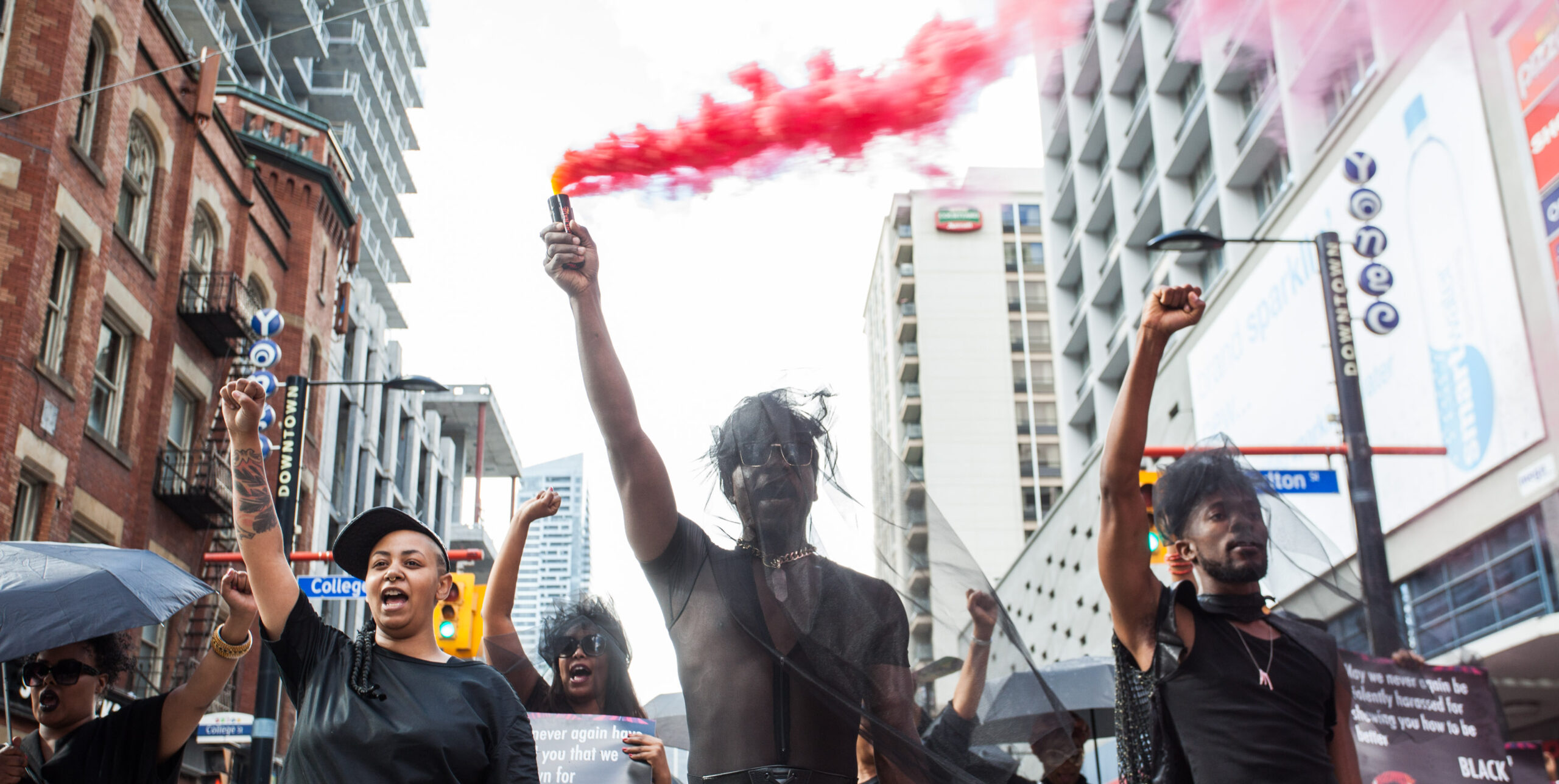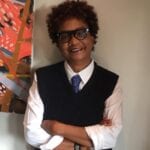On Dec 10, the Ontario Human Rights Commission (OHRC) released “A Collective Impact,” an interim report on its inquiry into racial profiling and racial discrimination of Black people by the Toronto Police Service (TPS). The findings revealed what many in Black communities have been saying for decades: that Black people are more likely than others to end up dead at the hands of police and that anti-Black racism drives policing practices in the city.
Black people were 20 times more likely to be shot by police than white people even in instances where the latter were armed and more confrontational with police. These damning statistics detailing the gross overrepresentation of Black people ending up dead in encounters with police confirms why police do not belong in Pride.
The week prior to the release of the OHRC report, a number of Black, Indigenous, queer and trans activists, and scholars penned a letter to the media calling on the executive director Olivia Nuamah and the Pride board to resign. In October, Nuamah had shocked many of us when she announced in a press conference with both the police chief and the Toronto mayor that the Pride board had decided to allow police to apply to participate in the 2019 parade.
Many of us viewed this decision as undemocratic. The Pride membership, in both 2016 and 2017, voted in support of the Black Lives Matter Toronto’s (BLMTO) demand to not allow the Toronto Police Service to participate in Pride. This meant no floats and no off-duty police in uniform.
“The Pride membership voted twice in support of the BLMTO demand to not allow the Toronto Police Service to participate in Pride.”
In 2016, BLMTO brought the Pride parade to a halt and issued a list of demands. Key among them was not allowing uniformed police to participate in Pride. In the winter of 2016, BLMTO camped outside the Toronto Police Services headquarters to protest the killing of Andrew Loku by police and to demand that criminal charges be brought against the officer who shot him. BLMTO, made up primarily of Black queer and trans people, knew too well the safety concerns police presence in Pride poses to queer and trans communities, especially to BIPOC.
In numerous US cities, most notably New York, LGBTQ2 people have disrupted or attempted to minimize the participation of police in Pride due to the ongoing police brutality and killings of Black and trans people. The release of the OHRC interim report disproves the commonly held Canadian assumption that police racism and brutality only happens in America. The membership support for BLMTO’s demand was a refusal to be complicit in rubbing shoulders with an institution whose everyday anti-Black and transphobic practices have deadly consequences.
“The Toronto police made little attempt to investigate the cases of several men of colour who had gone missing from the gay village between 2010 and 2017.”
The recent announcement by Nuamah that police have been invited to apply to participate in the Pride parade also came amidst the unresolved anger and frustration from the LGBTQ2 community that the Toronto Police Service had once again failed to take our concerns seriously.
It was discovered that the police made little attempt to investigate the cases of several men of colour who who had gone missing from Church-Wellesley Village between 2010 and 2017. Last July, Alloura Wells, a multiracial, trans sex worker, vanished. Her remains were discovered in a ravine in August but weren’t identified by police until December. Her death was not deemed suspicious. Yet despite all this, and despite the will of the membership, Pride decided it was time to invite the police to return.
At the Pride annual general meeting this year, members came seeking accountability from Nuamah and the board. Nuamah held a meeting before the official AGM to discuss the issue but quickly ended things when members pushed for transparency.
Both Nuamah and Toronto Police Chief Mark Saunders have shown contempt towards those who have criticized their decisions and practices. The AGM was shut down when the membership pushed for answers. Saunders, meanwhile, persists in blaming the deaths of queer and Black people on the community’s refusal to work with police.
Pride’s decision to invite police back to the parade, without any indication that the police have reformed themselves or have changed their treatment of Black and LGBTQ2 communities, is underhanded. Equally disconcerting is the recent news that Pride has received $450,000 in federal funding from Public Safety Canada for a national consultation project to increase the safety of LGBTQ2 Canadians, and to improve their relationship with police. Public Safety Canada currently has as its mandate policing and the correctional system, a system that disproportionately targets Black and Indigenous people, people of colour, queer and trans for incarceration and criminalization.
Pride Toronto can no longer be trusted to represent the queer and trans communities. We, as BIPOC, queer and trans peoples must return to our roots of mobilizing and organizing. We must begin to imagine new possibilities for freedom and liberation.
Beverly Bain is a Black, queer, feminist activist and scholar. She teaches in the women and gender studies program at the University of Toronto/Mississauga campus.


 Why you can trust Xtra
Why you can trust Xtra


